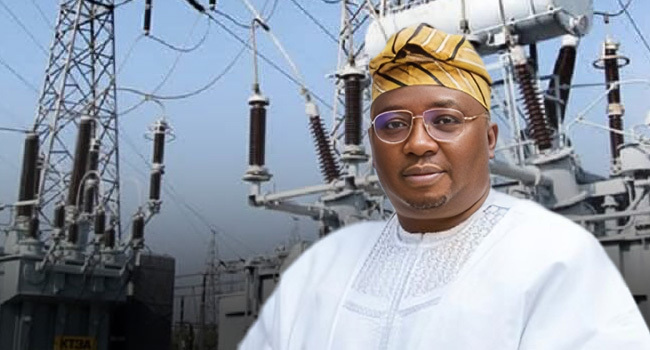In response to the recent collapse of Nigeria’s national grid, Power Minister Chief Adebayo Adelabu has directed the Transmission Company of Nigeria (TCN) and other relevant agencies to immediately implement the findings of a special committee report aimed at addressing the nation’s recurring power outages. The directive follows an unexpected grid disturbance on Thursday, attributed to a frequency surge from 50.33Hz to 51.44Hz, which disrupted power supply across several regions.
The report, submitted by the inter-agency committee on Wednesday, November 6, includes a range of recommendations intended to bring both immediate and long-term stability to Nigeria’s power infrastructure. Chief Adelabu’s swift directive underscores the urgency of restoring reliability to the grid, as frequent collapses continue to strain the country’s socio-economic environment.
Bolaji Tunji, Special Adviser to the Minister on Strategic Communications and Media, conveyed Adelabu’s resolve to end Nigeria’s power crisis, stating, “The recommendations of the committee are comprehensive and designed to provide lasting solutions to the persistent power grid failures that have embarrassed the nation for too long.”
TCN’s Repair Efforts and Appeal for Public Understanding
In the wake of the recent outage, TCN General Manager, Ndidi Mbah, assured the public that efforts are underway to restore stability. Mbah explained that immediate recovery operations brought the Abuja axis back online within minutes, although full system recovery continues. The frequency spike originated from technical issues at one of TCN’s substations, which was temporarily shut down to prevent further disruptions.
As part of the broader implementation of the committee’s findings, TCN has commenced critical repairs and upgrades on several high-priority lines and substations. Among these projects are enhancements to the 330kV Shiroro-Mando transmission line, significant upgrades at the Jebba Transmission Substation, and the restoration of the second Ugwuaji–Apir 330kV transmission line. TCN also pledged to close identified gaps in the transmission network that contribute to the grid’s vulnerability, focusing on both technical upgrades and strategic reinforcements as outlined by the committee.
“While we work to stabilize the grid, some degree of intermittent disruptions is likely to persist until these major projects are completed,” Mbah said. “We kindly ask for patience and understanding as we make these necessary improvements.”
A Call for Patience Amid Complex Grid Challenges
TCN acknowledged the strain that frequent outages place on Nigerians and emphasized that these technical upgrades are crucial to building a resilient and stable power grid. Additionally, Mbah highlighted the agency’s commitment to addressing ongoing infrastructure challenges, including the vandalism of transmission lines, which further complicates repair efforts.
Adelabu’s directive has ignited hope that Nigeria’s power sector may finally see substantive progress, as stability in electricity supply is critical for economic growth and quality of life. This urgent overhaul seeks to reduce the impact of outages on industries, businesses, and households, while TCN remains focused on achieving long-term resilience in line with the committee’s strategic recommendations.





2 Comments